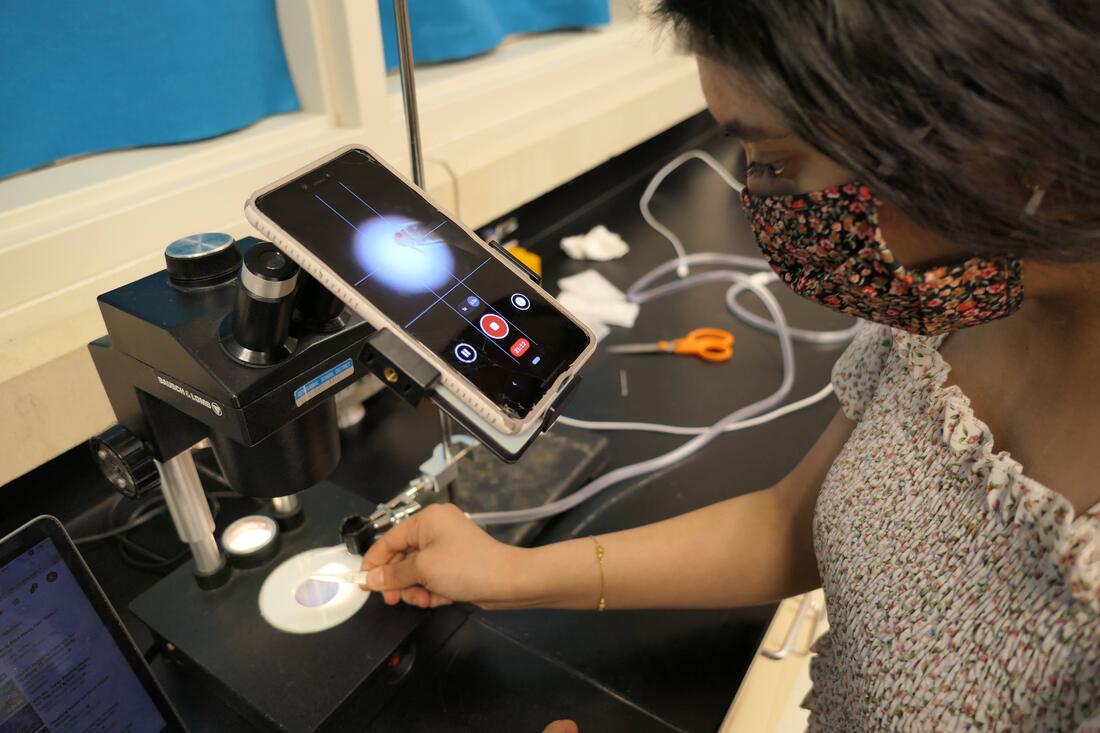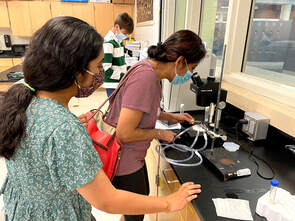|
Can you believe we’re already at the end? I can’t and I’m truly amazed by how fast time flew by. This weekend I’m going to be presenting my research at the symposium and I’m so excited to share my findings with my friends and family and also see my peers’ projects as well! The journey through my project was definitely fun, challenging, and at times frustrating, but it really opened my eyes and gave me valuable lessons which I will always remember. As I mentioned before, I decided study how classical music affects adult fruit fly memory after a traumatic brain injury because I wanted to find out if music can really stimulate memory and brain activity in an impaired brain and see if this can be related to how music could be used as a therapy to rejuvenate the deactivated senses. To test this, I conducted an unique memory assay, called the Proboscis Extension Reflex (PER) Assay, which has never been tested before in the history of TRIP. This assay came with a lot of moving parts that included starving the flies at home for 36 hours before conducting the experiment, fixing the fly in the tube, which took lots of practice with a record of four flies eaten by yours truly, and constantly poking the flies with sugar and water wicks to get a response. The highlight of this experience was definitely staying for a total of nine hours for the last four sessions in order to complete the entire assay and getting my parents to bring me food. All jokes aside, this experience challenged me in many ways and while it took some time to adjust to understanding, analyzing, and learning to develop this assay I was able to navigate and produce amazing results with the support of Dr. Purdy, Dr. Leystra, and my peers. From my results, I discovered that classical music improved memory in the adult male fruit flies and while the head trauma decreased the memory, the memory increased when the music and head trauma were combined. Overall, this showed that classical music improves memory and this positive response was also seen in the fly development wherein the flies exposed to music had more progeny and had a higher percent eclosion. These results have real life implications and show that music can really improve memory and rejuvenate these senses in people who suffer brain injuries. I began TRIP with an interest in expanding my scientific knowledge and seeking insights into the scientific questions I had and I can affirmatively say that I developed a newfound passion for conducting hands-on research. Although my goal of becoming a Neurosurgeon has not changed, I am really inspired to explore the possibilities of combining clinical work with research. I really enjoyed working with living organisms, studying their behavior from various angles, and relating these observations to humans and this experience was daunting but equally fun! Every session exposed me to new information and techniques I never would have imagined I’d be doing before college and gained a better sense of where my strengths and weaknesses were as well as how to improve upon them. The most important lesson I learned was to never accept failure and instead, view failure as undiscovered success. Overall, TRIP has been an extremely valuable and memorable experience and I can’t wait to see what the future has in store for us!
0 Comments
Your comment will be posted after it is approved.
Leave a Reply. |
Archives
April 2024
Categories
All
|


 RSS Feed
RSS Feed